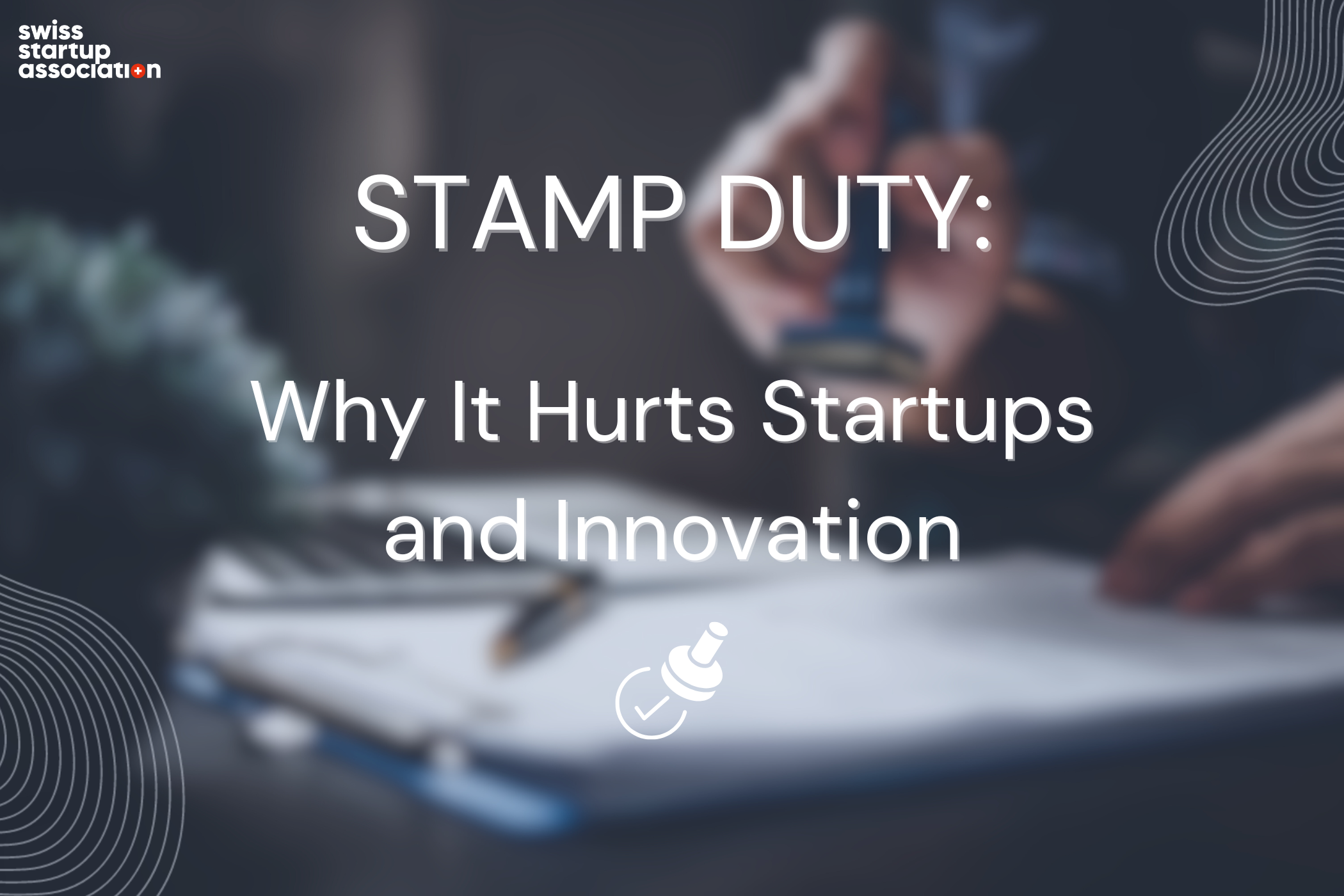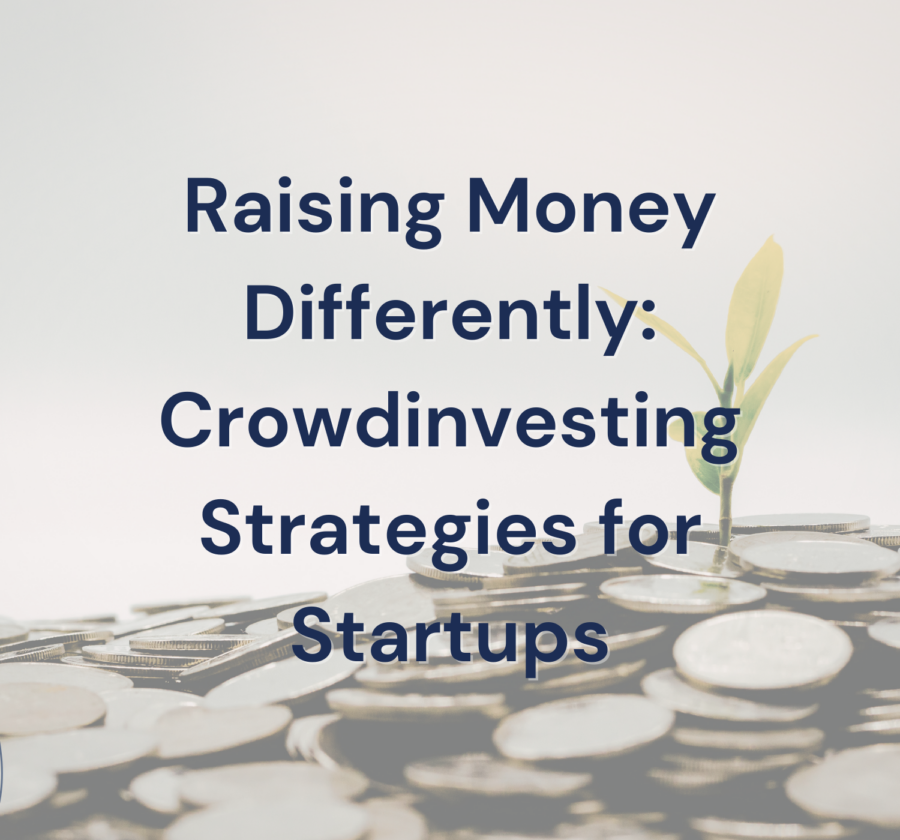
Stamp Duty: Why It Hurts Startups and Innovation
Stamp duty (Stempelsteuer) is a federal tax collected on the issuance and trading of securities, as well as certain insurance premiums. While it generates revenue for the government, it also creates challenges for companies, especially startups, that rely heavily on fresh capital to grow.
In this article, we’ll explain the types of stamp duty in Switzerland, why it is a problem for startups, and what changes are needed to strengthen the Swiss innovation ecosystem.
The Three Types of Stamp Duty in Switzerland
1. Issue Tax on Equity Capital (Emissionsabgabe): The issue tax (also called issuance stamp duty) is levied when Swiss corporations or cooperatives issue or increase their equity capital above CHF 1 million. The equity capital then gets taxed at a rate of 1% of the amount contributed. The issue tax also applies to certain bonds or participation rights.
2. Transfer Stamp Tax (Umsatzabgabe): The transfer stamp tax (also called transfer stamp duty) is levied on the trading of securities (shares, bonds, fund units etc.) if a Swiss securities dealer (bank, broker, insurance company, large company treasury) is involved as a party or intermediary. Swiss securities are taxed at 0.15%, while foreign securities are taxed at 0.3%.
3. Duty on Insurance Premiums: Certain insurance premiums get taxed at 5%. Life insurance and some health insurance contracts are not subject to stamp duty.
Why Stamp Duty Is a Problem for Swiss Startups
Stamp duty poses a problem for startups, as it creates obstacles at a time when young companies need flexibility and capital the most. Here’s why:
Issuance Stamp Duty = Tax on raising Capital
Startups often rely on equity financing from business angels, VCs or seed investors rather than debt. Once they raise more than CHF 1 million, they face a 1% issuance tax. For example, if a startup raises CHF 5 million, it immediately owes CHF 40,000 in stamp duty. For young companies, this money would be better spent on hiring engineers, developing the product or entering new markets.
Barrier to Scaling
Unlike established corporations with large profits, startups usually operate at a loss for several years. Taxing them when they raise funds (instead of when they earn profits) feels counterproductive. It punishes growth and discourages investors from providing additional capital.
Competitive Disadvantage
Many other innovation hubs don’t levy such a tax on raising capital. This makes Switzerland less attractive for investors and puts startups at a location disadvantage.
Liquidity squeeze
Startups are most cash-constrained during fundraising. Unlike income tax, which is only due once profit exists, stamp duty hits startups at their weakest financial point.
What Switzerland’s Innovation Ecosystem Needs
To stay competitive as a global innovation leader, Switzerland should abolish stamp duty on capital increases and startup investments. In the long run, stamp duty should be eliminated completely. This has been attempted once before. On 13 February 2022, a vote was held on amending the stamp duty law. However, it was rejected. The SSA is committed to this cause and continues to fight for better conditions for Swiss startups.



